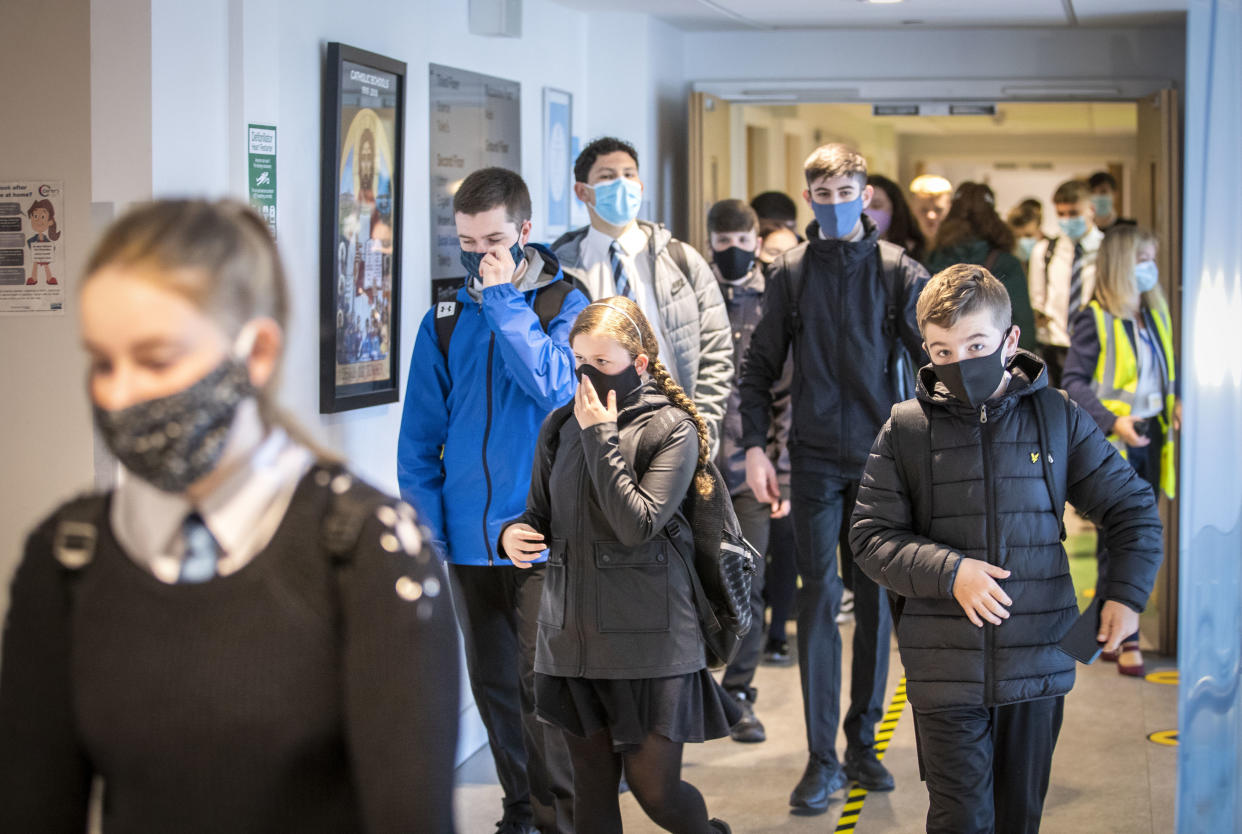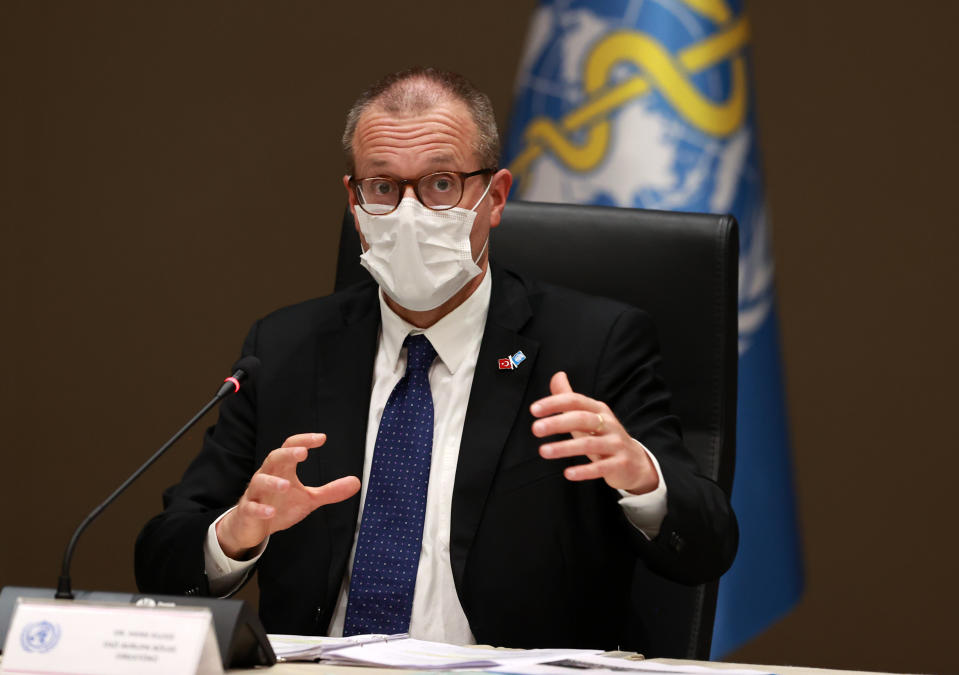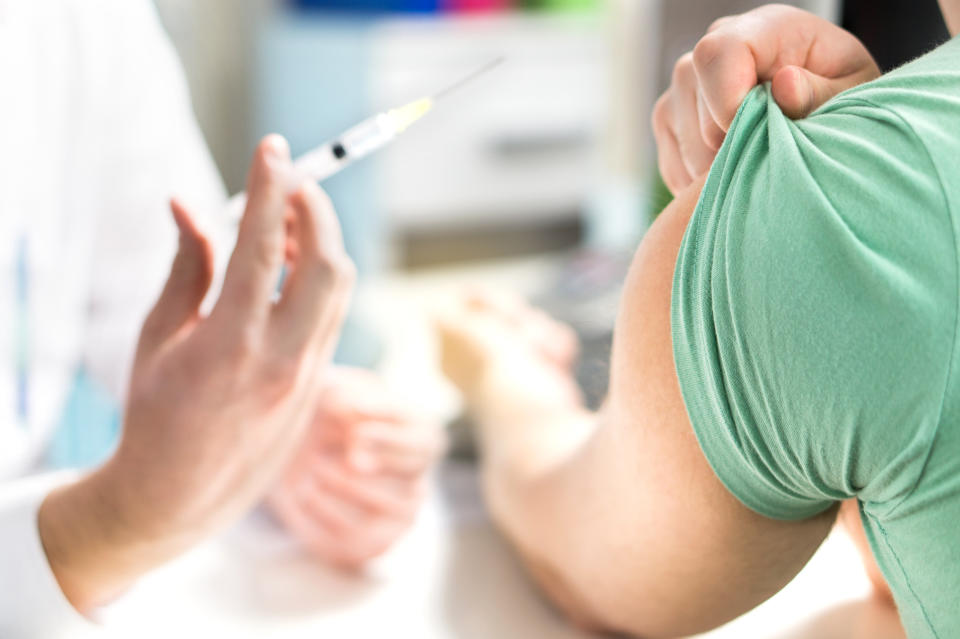Three factors likely to spark an increase in coronavirus cases in coming weeks

There is likely to be an increase in coronavirus cases this autumn, the World Health Organization (WHO) has said.
The WHO’s regional director for Europe, Hans Kluge, said on Tuesday there are three factors that will drive up cases of COVID-19 in the coming weeks.
He told BBC Radio 4’s Today programme that hospitals are likely to see an increase in patients.
However, he warned that local lockdowns are the best way to target any outbreaks, rather than national shutdowns.

He said: “Let’s not forget that we’re entering three phenomena – one is the reopening of the schools for the academic year, the second is the flu season and the third is the excess mortality in the elderly population during the winter.
“So I wouldn’t be surprised, unfortunately, if we see an increase in October, especially towards late November (of hospital admissions) – there’s no reason for panic but we have to be aware.
“It is far too early to draw all the conclusions for the time being but we know what needs to be done.
“This is the key message: if we look back in February, the full option was lockdown and rebooting but now we should target the virus and not the schooling, the economy and society.”
Reopening schools
Schools in Scotland and Northern Ireland have already reopened and their counterparts in England and Wales are following suit as September begins.
Last week, prime minister Boris Johnson had to ditch previous advice that pupils should not wear face masks in school areas outside classrooms.
Pupils in Scotland have already been wearing face masks in crowded areas of schools away from lessons.
The government maintains that children should return to school, with England’s deputy chief medical officer Dr Jenny Harries saying children are more likely to get the flu or be involved in a road accident than they are to catch coronavirus.
However, last month, scientists at University College London (UCL) and the London School of Hygiene and Tropical Medicine (LSHTM), said current testing and tracing is inadequate to prevent a second wave after schools reopen.
Former government adviser, Professor Neil Ferguson, who resigned from the government’s Scientific Advisory Group for Emergencies (Sage) after be broke lockdown guidelines, warned that the coronavirus R rate will rise when schools are reopened.
He said: “The risk then is that big schools, comprehensives, universities, FE colleges, link lots of households together, reconnect the social network which social distancing measures have deliberately disconnected.
“And that poses a real risk of amplification of transmission, of case numbers going up quite sharply.”
Flu season
There are fears that coronavirus cases will rise as the UK enters its winter flu season.
A report published by the Academy of Medical Sciences in July warned that a fresh COVID-19 outbreak in winter could be worse than the first, and cause up to 120,000 deaths in a worst-case scenario.
Professor Dame Anne Johnson said: “We need to minimise coronavirus and flu transmission everywhere, and especially in hospitals and care homes.

“We need to get our health and social care, and the track, trace and isolate programme, ready for winter. This can be done, but it must be done now.”
Last month, health officials warned that uptake for the annual flu jab “needs to improve”.
The list of people who qualify for a free flu jab on the NHS has been expanded to reduce seasonal flu pressures hitting the health service at the same time as a possible second peak of coronavirus cases.
Excess elderly mortality
The WHO says rising coronavirus cases could be linked to excess mortality among the elderly in winter.
In June, the Office for National Statistics (ONS) warned that undiagnosed COVID-19 was a “likely explanation” for some of the excess deaths in England and Wales not linked to coronavirus of elderly people with other health conditions.
The ONS said while there was no reason to believe that COVID-19 was knowingly omitted from death registrations, it is possible that symptoms were not apparent or the virus was mistaken for an illness with similar symptoms.
There were an estimated 23,200 excess winter deaths in England and Wales in the 2018 to 2019 winter, the lowest since the winter of 2013 to 2014, the ONS said.
Coronavirus: what happened today
Click here to sign up to the latest news and information with our daily Catch-up newsletter

 Yahoo Movies
Yahoo Movies 


